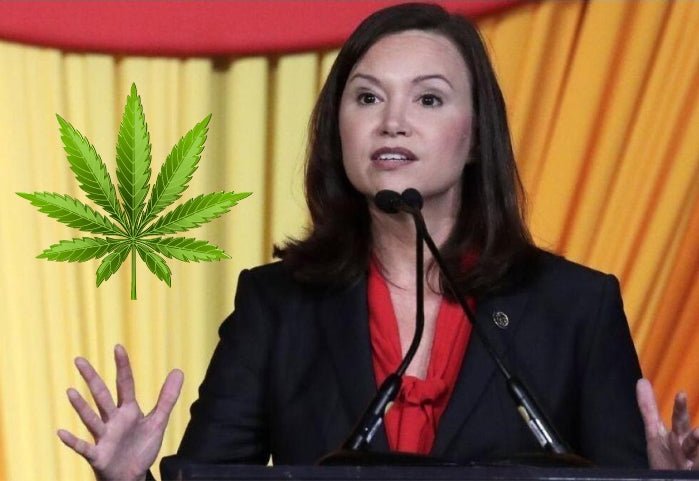Recently signed into law by Gov. Walz, Minnesota's new law legalizing adult-use marijuana sales could make the state one of the largest markets in the U.S. in less than ten years.

Not all segments of the cannabis story are created equal in America. When the narrative began a little over a decade ago, states like Colorado, Washington, and California burst onto the scene with much fanfare and spectacular results. For example, in 2014, the first year of legal adult-use marijuana sales, Colorado generated nearly $700 million in medical and recreational sales revenue.
Not to be outdone, in 2018, California produced over $2.51 billion in total cannabis sales during its first year of legalized recreational marijuana. Both states set the bar high for all other states wanting to join the growing list of those to legalize the popular plant. However, in recent years, particularly after the heady and lucrative days of the COVID-19 pandemic lockdowns, those stratospheric financial numbers have come crashing down to earth.
While still generating a substantial total for the year, Colorado's nearly $1.8 billion in total 2022 cannabis sales represented a 20.7% decline from 2021's record $2.2 billion sales total. Likewise, California experienced an 8.2% decrease in sales revenue in 2022 compared to its record high of $5.77 billion in 2021.
Much of the contraction is due to the overall economic decline brought on by the catastrophic effects of the pandemic. However, other factors contributing to the market contractions include overproduction, reduced demand following the lockdowns, and excessive taxation in California and Colorado. As a result, many producers, manufacturers, and retailers had to reduce their workforces, cut back on marketing budgets, and, in some instances, sell off assets or shut down altogether.
Nevertheless, despite the grim news for some of the more mature market bases in the United States, other states have experienced rapid growth and substantial sales numbers in the past few years. Illinois, which began legally selling adult-use cannabis products in 2020, generated over $1.5 billion in total marijuana sales revenue in 2022, a 12.5% increase over 2021.
Hoping to add its name to the list of breakout rookie success stories in the American marijuana saga, Minnesota recently became the 23rd state to legalize recreational cannabis sales to adults 21 and older. Moreover, as first reported by the Minnesota Star Tribune, a new market analysis by one of the country's leading cannabis law firms predicts that the "Land of 10,000 Lakes" could have a legal marijuana industry generating over $1.5 billion per year in sales by 2029 and serve more than 700,000 customers annually.
During a recent seminar on cannabis entrepreneurship held in Minneapolis, Travis Copenhaver, a partner at cannabis and psychedelics law firm Vicente LLP, said Minnesota's legalization of adult-use cannabis would provide new and exciting opportunities for entrepreneurs in the North Star state.
"The growth of Minnesota's cannabis market will be a lucrative opportunity for people interested in the adult-use cannabis market," said Copenhaver.
"The growth of Minnesota's cannabis market will be a lucrative opportunity for people interested in the adult-use cannabis market."
- Travis Copenhaver, a Partner at Cannabis and Psychedelics law firm Vicente LLP
As outlined by the market analysis, Minnesota's growth trajectory should mirror similar economic and market-based patterns witnessed in states like Colorado and several other 20+ states where adult-use marijuana is now legal. According to the research, the market's early days will most likely experience limited supply and, thus, high prices as the sector attempts to match the pace of demand. As the market matures, prices will inevitably decrease, an anticipated saturation level should set in, and annual sales should peak at around $1.5 billion.

According to Brian Vicente, founding partner of the firm and a pivotal part of the team responsible for crafting Colorado's marijuana legalization ballot initiative in 2012, Minnesota has smartly and uniquely positioned itself for the establishment of its recreational market. An example of that forward-thinking strategy was the legalization of low-dose, hemp-derived THC edibles, and beverages in the summer of 2022, which allowed Minnesotans to become familiar with those types of products ahead of the full legalization implementation.

In addition, he believes potential consumers from neighboring states that have yet to legalize adult-use cannabis, along with other visitors to the state, should also stimulate the expansion of marijuana sales in Minnesota in the next five years.
"Minnesota stands to attract a significant amount of tourist traffic from neighboring states like Iowa and North Dakota as consumers venture to purchase Minnesota's cannabis products," Vicente said.
"Minnesota stands to attract a significant amount of tourist traffic from neighboring states like Iowa and North Dakota as consumers venture to purchase Minnesota's cannabis products."
- Brian Vicente, Founding Partner at Vicente LLP
Furthermore, those dazzling sales projections will ultimately lead to significant tax revenue for Minnesota state coffers and local governments. The Department of Revenue estimates that adult-use cannabis sales could produce roughly $107 million in yearly tax revenue for the state and an estimated $21.5 million for local governments by fiscal year 2027.
The analysis offered up by the Vicente law firm is even more impressive considering that state agencies will not even begin accepting applications for recreational cannabis retailers until May 2024, according to a report by Minnesota Public, with dispensary sales not expected to begin until at the earliest January 2025.
The results generated in Minnesota over the next few years will be closely watched by those neighboring states considering their own marijuana legislation reform. If the predicted results come to fruition, the economic power of the marijuana plant and the blueprint set forth by the leaders in Minnesota could push even the most diehard opponent to reconsider their position and become open to the inevitable and growing financial juggernaut that cannabis is fast becoming with each passing year.







































